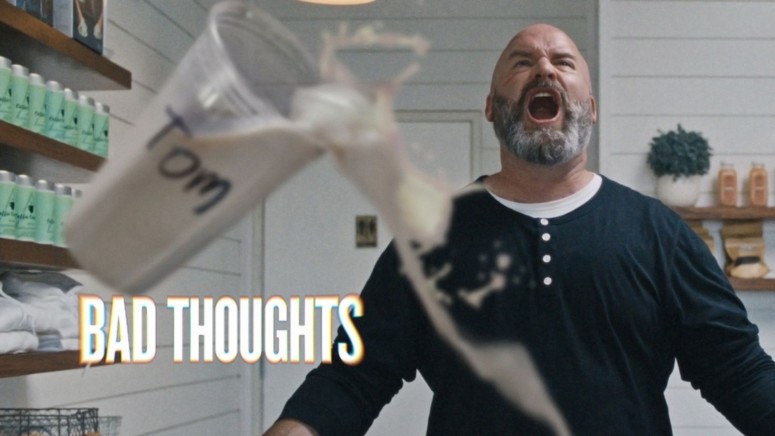
Bad Thoughts Ending Explained: Tom Segura’s Twisted Sketch Series Collapses into Hilarious Chaos
Tom Segura’s Bad Thoughts pushes sketch comedy into a deranged new dimension—combining the surreal storytelling of The Twilight Zone with the boundary-pushing humor of South Park.
Across six episodes, the series delivers a relentless barrage of taboo-shattering sketches—from s*x cults and violent VR fantasies to grotesque body horror and mind-melting satire. But does it all lead somewhere? Yes—and no. Here's Bad Thoughts ending explained in full.
The Setup: VR, Revenge, and Recurring gags
Throughout Bad Thoughts, Segura plays multiple characters in disconnected stories that slowly begin to overlap. The standout throughline is the bitter rivalry between VR fan Cyrus and everyman office worker Evan, which begins with a petty cake dispute and spirals into digital torment. By mid-season, Cyrus has evolved into a sadistic tech mogul, trapping Evan inside increasingly twisted VR simulations.
Meanwhile, Segura’s gallery of alter egos grows more unhinged—Rex Henley, a country singer who kidnaps fans for inspiration; a French noir antihero with a mutant twin twist; and Massimo, an old caregiver who sparks an old-age pregnancy scandal.
The Finale: Reality Breaks, and so does Segura
By episode six, reality itself has unraveled. The VR gags go full Black Mirror as Cyrus’s sadism reaches new heights. A work retreat devolves into a meta-commentary on cancel culture, and the show’s most grotesque joke arrives: Segura gains a monstrous p*nis from drinking green juice, so large it has to be slung over his shoulder.
The chaos isn’t just for laughs—it’s the show’s ultimate thesis. Bad Thoughts never promised a moral; it promised mental mayhem. And by the time Segura crash-lands a plane after debating slurs with a little person, it’s clear we’re watching the collapse of a man’s (and maybe society’s) most unfiltered impulses.
What it all Means: The joke is the Point
Unlike anthology series that end with a twist or moral, Bad Thoughts embraces incoherence as its closing statement. Every sketch builds upon another’s absurdity, creating a crescendo of crude humor, social anxiety, and surrealism. The Evan vs. Cyrus plot doesn’t resolve—it combusts, dragging the viewer down with it.
Segura seems to be saying: if intrusive thoughts had a stage, this would be their headline act. There’s no deeper message—only an invitation to laugh at the darkest, weirdest corners of the human brain.
The ending of Bad Thoughts isn’t a resolution—it’s a glorious, offensive, grotesque explosion of everything the show stands for. And yet, amidst the chaos, Segura reveals a clever design behind the madness. Whether he’s mocking masculinity, digital culture, or our addiction to outrage, he wraps it all in a punchline too big to ignore.
Love it or hate it, Bad Thoughts leaves you with one undeniable truth: Tom Segura is just getting started.
Bad Thoughts is now streaming on Netflix.











